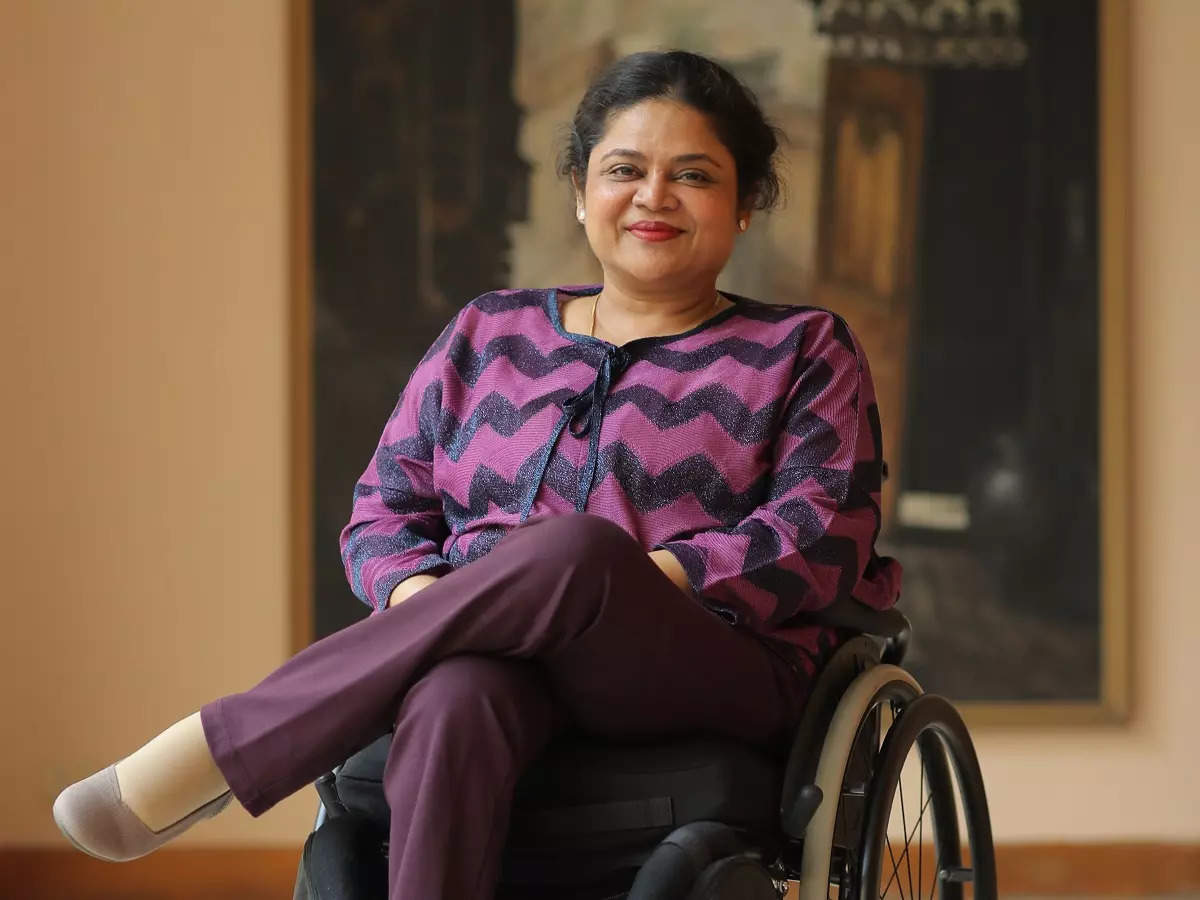
Accessibility in India presents a complex challenge, encompassing physical and social barriers for individuals with reduced mobility. As per Census 2011, an estimated 26.8 million people living with disabilities in India and 104 million aged 65 and above face mobility constraints; the need for concerted efforts is evident. Notwithstanding such an important concern affecting everyone, India also lacks a designated day dedicated to accessibility.
Recognising this imperative, Svayam, a prominent accessibility organisation, is actively working to make services accessible for people with special needs. The organisation aims to reform infrastructure and transportation to make it accessible for people with reduced mobility.
Sminu Jindal, Founder – Chairperson of Svayam and MD, Jindal SAW, who being a person with reduced mobility, has been working towards promoting and building accessible infrastructure that gives every individual the freedom to independently explore the built environment around them, irrespective of their physical limitations.
This was on philanthropist-business visionary Sminu Jindal’s mind when she founded Svayam in October 2000. An initiative of the Sminu Jindal Charitable Trust, Svayam is a not-for-profit accessibility pioneer that focuses on creating a barrier-free world for all.
In a recent conversation with ETTravelWorld, Jindal shared her thoughts on the need to promote accessible tourism in India and how Svayam has been working towards promoting and building accessible infrastructure in India.
According to her, the optimum use of resources to build special travel coaches in railways, metros and buses that cater to the needs of people with reduced mobility is currently the prime need of the hour. She added that infrastructural updates in the cities and the need to add ramps and railings at every spot are also necessary for people with reduced mobility.
With respect to accessible tourism, Jindal said tourists with special needs or reduced mobility face various challenges during their trip in India. “One of the major challenges is the lack of infrastructure that caters to the needs of people with disabilities, elderly individuals, and others with mobility constraints. Accessible toilets, ramps, railings, and other facilities are often missing, making it difficult for these individuals to explore and enjoy tourist spots comfortably.
Talking about addressing these challenges and improving accessibility across tourist destinations in India, she mentioned that there needs to be a concerted effort from both the government and private sector to prioritise accessibility in tourism infrastructure. “This includes implementing regulations and guidelines that ensure all tourist spots are accessible. Additionally, industry stakeholders can play a significant role by investing in accessible transportation and accommodation options,” she added.
Speaking of investments, Jindal stated that It’s essential to allocate funds specifically for accessibility enhancements within the tourism sector. She added that it’s important to ensure that resources are optimally utilised to create special travel coaches, ramps, and other accessibility features.
“This could involve setting aside budgets for the construction of accessible facilities, training personnel to cater to diverse needs, and conducting regular audits to ensure compliance with accessibility standards,” she mentioned during the conversation.
Sharing some insights from Svayam’s study on accessible tourism in India, Jindal informed that the organisation’s study, titled “The Problems and Prospects of Accessible Tourism in India,” sheds light on the challenges faced by travellers with disabilities and the potential benefits of improving accessibility. It emphasises the need for awareness campaigns, training programs, and stakeholder collaboration to create a more inclusive tourism environment.
On being asked about the future prospects for the growth of accessible tourism in India, the Svayam Chairperson said she envisions a future where every tourist destination in India is fully accessible to everyone, regardless of their physical abilities.
“This not only promotes inclusivity but also boosts tourism revenue and contributes to sustainable growth. It’s time we prioritise accessibility as a fundamental aspect of our tourism industry. By improving accessibility, India can boost tourism and monetary growth while ensuring that everyone, regardless of their physical limitations, can enjoy the rich heritage and culture the country has to offer.” she added.
She aims to promote accessibility as a civilization issue, starting with India and eventually extending globally. During the conversation, she also provided statistics on the growing population of people with disabilities in the country, emphasising the need for inclusivity in tourism.



